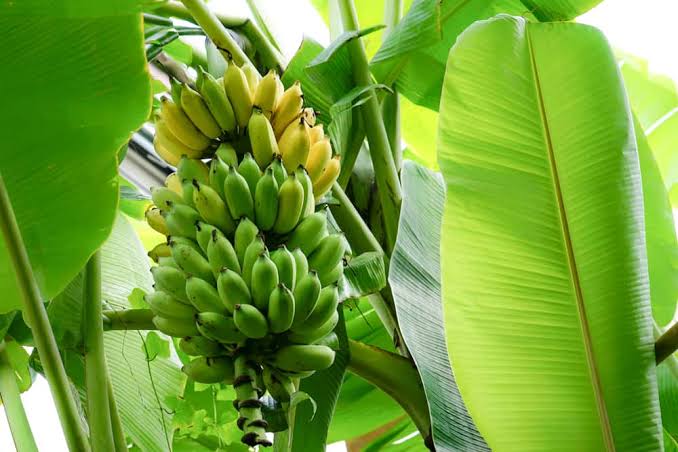In Nigeria, bananas and plantains are staples consumed daily across households. However, a disturbing practice continues to threaten public health: the widespread use of calcium carbide (CaC₂) for artificially ripening. When exposed to moisture, calcium carbide releases acetylene gas, which mimics the natural ripening hormone, ethylene. Unlike ethylene, calcium carbide is an industrial-grade chemical often contaminated with arsenic, phosphine, and heavy metals, all of which are hazardous to human health.

The use of calcium carbide (CaC₂) to ripen bananas and plantains in Nigeria poses a dangerous public health risk. When exposed to moisture, calcium carbide releases acetylene gas contaminated with arsenic, phosphine, and heavy metals, which can cause respiratory problems, gastrointestinal disorders, neurological damage, and even long-term risks such as cancer, kidney, and liver disease.
Experts warn that washing such bananas or plantains does not remove the danger, as the chemical alters the fruit internally. This contrasts with global best practices in the UK, US, and EU, where bananas are ripened in controlled ethylene gas chambers—a safe, natural process.

Shockingly, Nigeria has no operational gas ripening chambers today, leaving consumers exposed. Authorities must therefore act urgently with strict enforcement, heavy penalties for offenders, and investment in safe ethylene chambers. Nigerians deserve safe food, not silent poisoning.
The Dangers of Calcium Carbide Ripening
Regular consumption of bananas ripened with calcium carbide can lead to:
Respiratory irritation (coughing, throat and lung issues).
Neurological effects, including dizziness and headaches.
Gastrointestinal problems, due to chemical residues.
Long-term risks such as cancer, kidney and liver damage from heavy metal accumulation.

Children, pregnant women, and those with chronic illnesses are particularly vulnerable. Importantly, washing such bananas or plantains before peeling does not eliminate the health risks, since the chemical action alters the fruit’s internal quality.
Global Comparison
In developed nations such as the UK, EU, and US, bananas are ripened in controlled chambers using ethylene gas. Ethylene is a natural plant hormone, non-toxic, and safe for human consumption. Unfortunately, as of today, Nigeria has no widely established gas ripening chambers, leaving a dangerous gap in food safety practices.

The Way Forward
Nigerian authorities must take a hard line against perpetrators of carbide ripening. Urgent measures include:
Zero tolerance enforcement with strict penalties for traders using calcium carbide.
Investment in ethylene-based ripening chambers, making them the new standard nationwide.
Public awareness campaigns, teaching Nigerians how to spot suspiciously ripened fruit.
Conclusion
It is not safe to eat bananas or plantains ripened with calcium carbide under any circumstance. Unlike ethylene-ripened bananas, they pose ongoing health risks even if washed before consumption. With no gas ripening chambers in place, Nigeria must urgently regulate, modernize, and protect its people from a dangerous, silent food-safety crisis.
The National Patriots.
Headlinenews.news Special Investigative Report.




